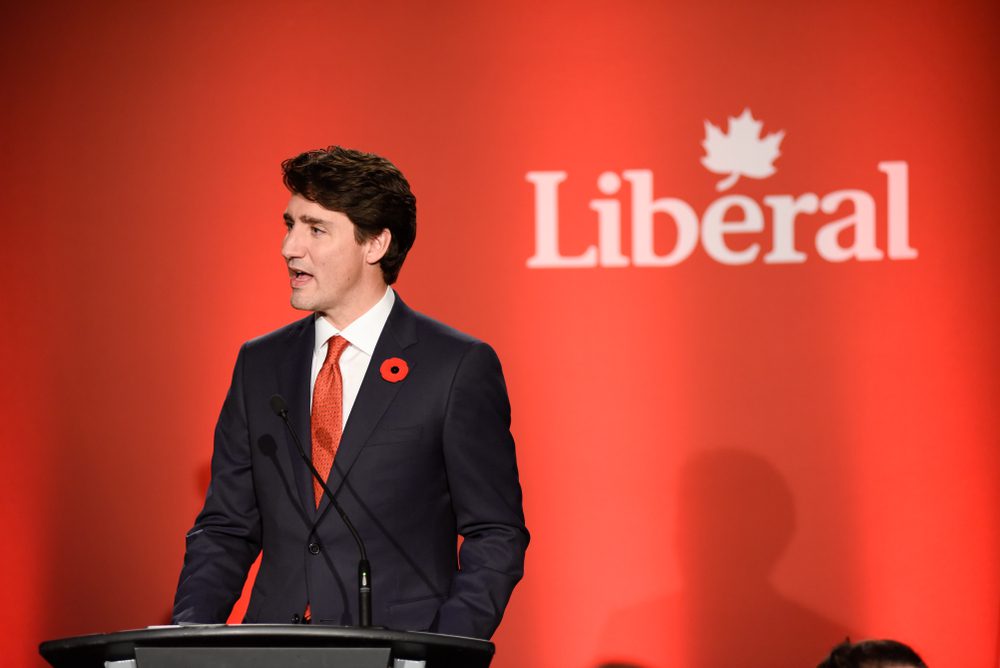
Canadian Prime Minister Justin Trudeau announced the end of the Emergencies Act during a news conference on February 23rd. As reported earlier, the Emergencies Act had been invoked for the first time in Canadian history, in reaction to the protests and blockades by truckers in Ottawa and other provinces of Canada.
“The situation is no longer an emergency,” Trudeau said, “we are confident that existing laws and bylaws are now sufficient to keep people safe.”
After Trudeau invoked the Emergencies Act last week, the House of Commons affirmed its use on Monday. The Senate was in the midst of debating the act on Wednesday when Trudeau made his announcement ending the use of emergency powers.
This past Wednesday, February 23rd, Trudeau defended his decision to invoke the Act, also stressing that an inquiry into the circumstances that led to its use would be held within 60 days as required by law.
During the parliamentary vote, Conservatives and Bloc Québécois opposed the use of the act, arguing that it constituted government overreach. Other critics, including the Canadian Civil Liberties Association (CCLA), have said the use of the act was unnecessary because the protests were not a legitimate national emergency.
Candice Bergen, interim leader of the Conservatives, released a media statement saying that “today’s announcement is proof that the prime minister was wrong when he invoked the Emergencies Act.” She argued that nothing had “changed between Monday and today other than a flood of concerns from Canadian citizens, bad press, and international ridicule.”
The CCLA also announced a lawsuit against the government over its use of the act, although whether to continue its challenge is on the table. Nevertheless, the damage has been done. “Even though the orders are no longer in force, Canadians are left with the precedent that the government’s actions have set,” the CCLA said in a statement.
And a dire precedent it was. The Emergencies Act allowed police to designate no-go zones where people assembling in the prohibited public spaces could face arrest. The act gave the government the authority to force tow-truck companies to haul away vehicles blockading roads. It also supported the arrest of nearly 200 people, including one of the leading organizers of the protests, Tamara Lich. She was denied bail on Tuesday.
The Emergency Act curtailed practical freedoms as it suppressed economic ones. In an effort to choke off funding for the demonstrations, the government suspended court order requirements to access private bank accounts, and gave banks the authority to seize funds belonging to the protesters. According to the Royal Canadian Mounted Police, the accounts that were frozen belonged to “influencers” of the protests and/or owners of the vehicles involved in the blockades “who did not want to leave.” Isabelle Jacques, assistant deputy finance minister, reported that 206 personal and corporate accounts with holdings of more than $6.1 million had been frozen, but noted that the financial institutions had started to unfreeze accounts this week.
While the protesters demanded freedom of choice with regards to their vaccination status, some politicians repeatedly insinuated fascist motives behind the protests. On Monday, February 21st, Liberal MP Ya’ara Saks claimed in front of Parliament that “honk honk”—the unofficial slogan of the Freedom Convoy—was a coded reference meaning “Heil Hitler.” Upon receiving backlash for this in the media, Saks doubled down on her initial statement by linking to a post of an Antifa-activist on Twitter, in which the activist deducted that both “Heil Hitler” and “honk honk” could be abbreviated to “HH.
This was only the latest incident in a row of similar disputes in the Canadian House of Commons. Earlier on February 16th, Prime Minister Trudeau had accused members of the Conservatives party of “standing with swastikas” when supporting the protests of the Freedom Convoy, a statement he made after a speech of a Jewish member of the Conservative Party.
The Emergencies Act might have been revoked, but the dust is yet to settle.
